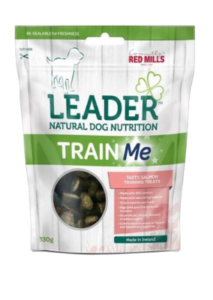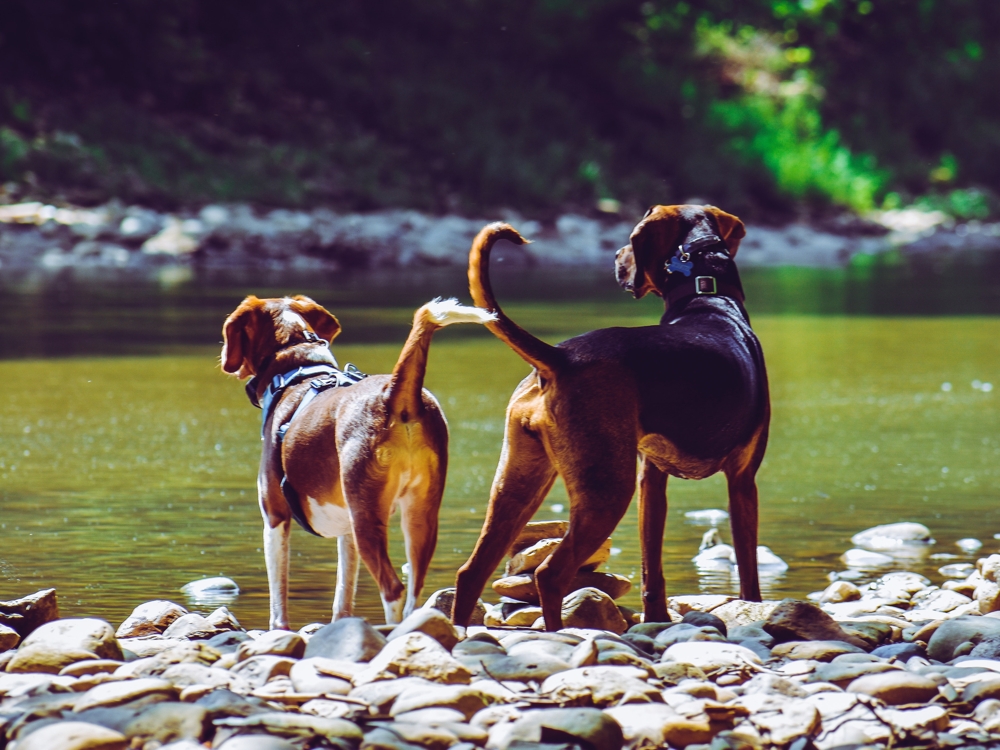Vaccination Schedule for Puppies
Share
[Sassy_Social_Share]Once you’ve brought home your new puppy, the full weight of being responsible for that furry little bundle of joy can hit hard. You want to see that little one thrive and romp and play without a worry. And you can if you simply follow the standard, recommended vaccination schedule to protect your pup against disease. Learning about what vaccinations puppies need is the first step to keeping your dog safe.

Puppies are born with some immunity from their mother, but it only lasts a few weeks. That is why it is important not to take the puppy out for walks or visit dog parks until he is adequately vaccinated. Your puppy will need two initial vaccines and then an annual booster to ensure he is protected. Once he’s had the two initial vaccines, he can enjoy socializing with other dogs.
- First vaccine at six to eight weeks of age.
- Second vaccine at 12 weeks of age.
- Annual booster after that.
Many dog breeders and rescues will make sure their pups have one or both of their initial vaccines before they join their new families. Puppies need to stay with their mothers until they are at least eight weeks old, and many experts feel that 12 weeks is better. When you get your new pup, the breeder or rescue should provide a record of any vaccines as well as details of the pup’s microchip. Then it is up to you to make sure both the vaccines and the microchip details are kept current.
What Vaccinations Do Puppies Need?
The UK and Ireland are thankfully rabies-free, so unlike many places your dog is not required to have a rabies vaccine. If you are travelling with your dog to other countries, your dog will need a rabies vaccination. So what vaccinations do puppies need here? Four main diseases pose a risk to dogs in Ireland and the UK, and it is critical to vaccinate against them.
- Canine Distemper: This is one of the most dreaded contagious illnesses a dog can encounter. While the initial symbols resemble a human cold with coughing, runny nose and eyes and a fever, it will progress to seizures and usually death. There is no cure, so prevention is essential. Distemper can be spread through a dog’s saliva or urine.
- Infectious Canine Hepatitis: Also known as canine adenovirus, this disease attacks the liver or the respiratory system. (There are two types.) Some dogs recover but have life-long complications, but others die from it. It is easily spread by saliva, blood, urine and faeces. Dogs can even spread it by just sniffing noses.
- Canine Parvovirus: Parvo is an excruciating, often fatal and always extremely expensive to treat disease. Symptoms include vomiting and diarrhoea. The most terrifying thing about parvo is that the virus can live in the soil for months. An unvaccinated dog can get parvo without ever going near an infected dog.
- Leptospirosis: This disease rapidly causes organ failure. It is one of the most widespread infections that can pass from dogs to humans. If caught quickly can be treated with antibiotics. Not all dogs survive it, and those that do can be left with lingering health problems for life. It is through urine contaminating either water or soil.
- Kennel Cough: Your dog can catch this one without ever going near a boarding kennel, and reputable boarding kennels won’t admit any dog that hasn’t been vaccinated. Kennel cough is highly infectious, but not as serious as the other diseases that dogs are routinely vaccinated against. Puppies, older dogs and those with other health issues can be hit much harder, however.
- Canine Parainfluenza: This airborne respiratory infection is rarely serious, but it is highly contagious. It’s still miserable, and it makes sense to vaccinate against it. If you pup spends time with an elderly dog, it is even more important to vaccinate, especially if you are unsure of the older dog’s vaccine status.
Puppy’s First Trips to the Vet
If dogs only go to the vet when they are ill or need jabs, they quickly learn to dread it. They pick up on the fear of other dogs in the waiting room, so it is important to get them off on the right paw. Making your puppy’s first trips to your vet fun will make for a much easier life. Few dogs get through life without any illness or injury. If your dog learns young that the vet is his friend, he will be less upset going there when he is hurting.
Bring a few healthy dog treats with you on your first visits to your vet. Leader Train Me treats are ideal for this. They are small, low-calorie and irresistible, so you can give your pup plenty of them. Ask the vet and other staff to give your pup some of the treats too to help him understand they are his friends. Give him a treat immediately after the vet giving him the needle, and he will quickly be distracted and forget the jab. Praise him lavishly and let him know what a great little dog he is for being a good patient.
Until your pup is fully immunised, he should keep a distance from other dogs in the waiting room just to be safe. But once you get the green light from your vet, your pup can go out for walks and meet other dogs. It’s important to socialise him so he knows how to behave nicely with his canine peer group and not be fearful or aggressive.
Your pup will relish being at your side. He’s a natural ice-breaker, so don’t be surprised if he helps you get to know your neighbours and other people you encounter regularly along your walks. He’ll bring so much fun and laughter into your life. So it is only right to ensure he is protected and safe from disease when you take him out.






